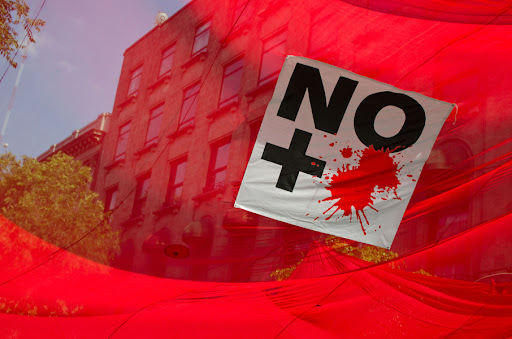
Shortly after taking office in 2006, President Felipe Calderon made the risky decision to deploy the military to confront increasingly powerful drug trafficking organizations. Five years later, the results of that strategy are painfully clear: violence has spiraled uncontrollably upward , fueled by military grade weaponry and inter-cartel struggles over trafficking routes. Civilians have been caught between sociopathic traffickers and heavy-handed military policing, particularly when the latter fails to provide any protection from the former.
Traumatized by gruesome massacres of northbound immigrants and senseless crossfire killings, Mexican society has begun to push back against government policies. On Sunday, a march for peace arrived in the zocalo, waving white flags stained with fake blood.

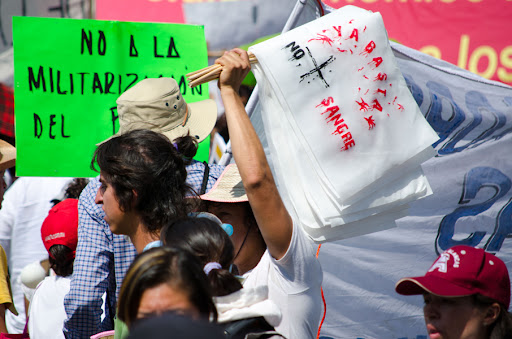


While the movement's broad objectives were noble, its platform was profoundly revealing of the quandary presented by narcotrafficking. If a thousand origami swans is a touching gesture, it is equally unlikely to bring about an end to the violence as demanding the President's resignation. The sweeping institutional, social and economic reforms that could begin to address the crisis are actually less likely to be achieved with a 'citizen candidate', despite the march leaders' insistence on a total rejection of existing political parties. Corruption, simply put, is not the problem. Mexico's judicial and penal systems are nearly irreparably broken; recruitment posters for prison guards in the Metro advertise a starting monthly salary of 6500 pesos - around $560 dollars. The country's tax system is in desperate need of reform, and its ability to exploit what oil resources still remain is hampered by outdated but virulently defended legislation. The legacies of the political structure birthed by the Revolution - most prominently the prohibition of reelection - create a permanent hindrance to representative governance. Job creation lags far behind population growth, leading to the tragic growth of the "ni-ni's", youth who neither study nor work. Confronted with his impasse, the marchers' frustration is shared by many.

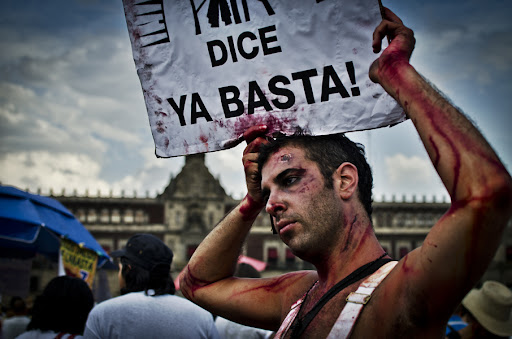
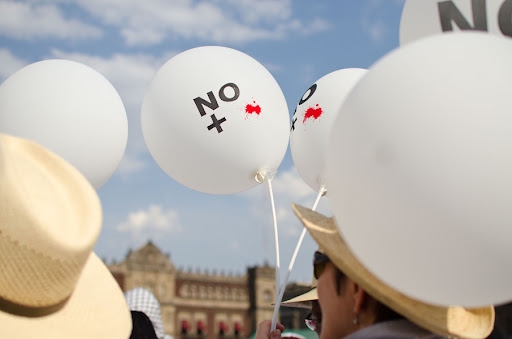
Ultimately, it is unlikely that the march will have any lasting impact on the political scene. Turnout was underwhelming, and previous civil society protests against violence and crime have done little to alter the landscape. Fake blood theatrics are hardly an effective tool for opening serious discourse, and a great deal of ideology floated beneath the waving banners. What hope was to be found on Sunday was in small signs of compassion and sacrifice, not overt politicking and radical sloganeering. The pain that was on display is not enough to produce a change, but it might be enough to move toward healing.
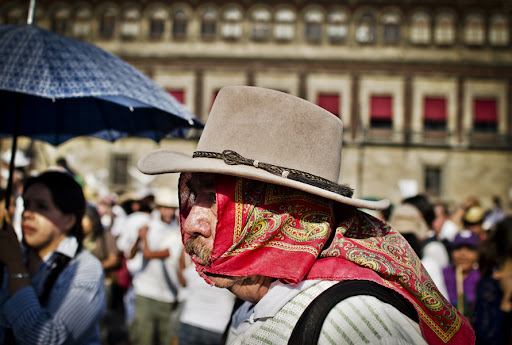

I can be contacted at: lettieri.michael (at) gmail.com

No comments:
Post a Comment